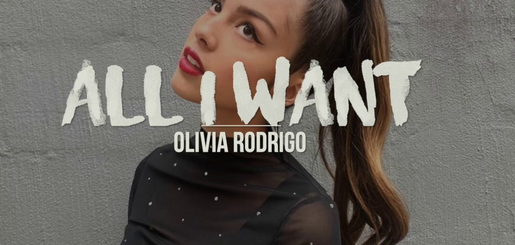Teenage Dream by Olivia Rodrigo Lyrics Meaning – A Nostalgic Reckoning With Growth and Expectations
- Music Video
- Lyrics
-
Song Meaning
- The Weight of Precocity: Rodrigo’s Poetic Questioning of Maturity
- Shattering the Pedestal: The Unattainable Teenage Dream
- A Hidden Message in Repetition: Doubts that Echo with the Chorus
- The Metaphor of the Corrupted Celebration: Birthdays as Bittersweet Markers
- Unforgettable Lines: The Challenge of Authenticity
Lyrics
When am I gonna stop being a pretty young thing to guys?
When am I gonna stop being great for my age and just start being good?
When’ll it stop being cool to be quietly misunderstood?
Well, I’ll blow out the candles, happy birthday to me
Got your whole life ahead of you, you’re only nineteen
But I fear that they already got all the best parts of me
And I’m sorry that I couldn’t always be your teenage dream
And when does wide-eyed affection and all good intentions start to not be enough?
When will everyone have every reason to call all my bluffs?
And when are all my excuses of learning my lessons gonna start to feel sad?
Will I spend all the rest of my years wishing I could go back?
Well, I’ll blow out the candles, happy birthday to me
Got your whole life ahead of you, you’re only nineteen
But I fear that they already got all the best parts of me
And I’m sorry that I couldn’t always be your teenage dream
They all say that it gets better, it gets better the more you grow
Yeah, they all say that it gets better, it gets better, but what if I don’t? Oh
They all say that it gets better, it gets better the more you grow
Yeah, they all say that it gets better, it gets better, but what if I don’t? Oh
They all say that it gets better, it gets better the more you grow
Yeah, they all say that it gets better, it gets better, but what if I don’t? Oh
They all say that it gets better, it gets better the more you grow
Yeah, they all say that it gets better, it gets better, but what if I don’t?
Olivia Rodrigo’s ‘Teenage Dream’ is more than just a nostalgic anthem; it’s a poignant dissection of youth, where the promise of bloom bristles against the reality of growth. The singer-songwriter, who is known for her lyrical prowess and emotional delivery, dives deep into the bittersweet transition from adolescence to adulthood.
In this lyrical exploration, Rodrigo contemplates the sacrifices made on the altar of growth, the pressures of meeting societal expectations, and the fear of losing the essence of youth in the relentless march of time. It’s a coming-of-age ballad wrapped in wistful melodies and stark honesty.
The Weight of Precocity: Rodrigo’s Poetic Questioning of Maturity
In the striking opening line, ‘When am I gonna stop being wise beyond my years and just start being wise?’ Rodrigo captures the paradox of precociousness. She calls attention to the double-edged sword of being considered mature for one’s age—a compliment that often comes with the unintended consequence of a heavier burden of expectations and a diminished leeway for mistakes commonly afforded to youth.
The artist deftly uses her self-interrogation to highlight a universal struggle: the pressure young individuals face to be remarkable, coupled with the desire to be allowed the grace to simply be adequate.
Shattering the Pedestal: The Unattainable Teenage Dream
Rodrigo’s chorus, ‘And I’m sorry that I couldn’t always be your teenage dream,’ echoes with the sorrow of self-realization and the pain of falling short of someone’s ideal. This apology resonates with anyone who’s ever felt the strain of not living up to an idolized version of themselves, acknowledging that the quintessential teenage dream is an elusive mirage that fades when grasped.
Through this confession, Rodrigo not only seeks forgiveness for her perceived shortcomings but also questions the fairness of holding onto such unrealistic standards, both self-imposed and from others.
A Hidden Message in Repetition: Doubts that Echo with the Chorus
‘But what if I don’t?’ Rodrigo repeatedly muses in the outro. What begins as an almost subtle background whisper grows into a resonant declaration of her deepest anxiety. The repetition acts as an amplification of her doubt—each iteration louder, more insistent, as if challenging the adage that ‘it gets better with time.’
This refrain becomes more than words; it’s an anthem for everyone at a crossroad, where the known comforts of the past threaten to overshadow the uncertainties of the future. Rodrigo taps into a collective fear, underscoring that growth does not always assuage the latent worry of stagnancy.
The Metaphor of the Corrupted Celebration: Birthdays as Bittersweet Markers
In Rodrigo’s vivid imagery, birthdays cease to be celebrations and become stark reminders of time’s passage: ‘Well, I’ll blow out the candles, happy birthday to me.’ This seminal moment traditionally symbolizing hope juxtaposes the realization that, as she ages, parts of her essence may be lost or exploited. The birthday becomes a complex emotional landmark: a commemoration of survival and a mourning of innocence.
By framing the ritual in such personal, sentimental terms, Rodrigo casts a shadow on the cultural expectation of birthdays as purely joyful occasions, instead portraying them as moments of introspection and even trepidation.
Unforgettable Lines: The Challenge of Authenticity
Among the myriad of evocative lines in ‘Teenage Dream,’ one that lingers long after the music fades is ‘When’ll it stop being cool to be quietly misunderstood?’ This rhetorical question is a poignant acknowledgement of a time in which misinterpretation has become a cultural currency, a badge worn with a mixture of pride and disenchantment.
By pondering the expiration date of her own enigmatic allure, Rodrigo subtly critiques a society that romanticizes the trope of the misunderstood youth and prompts listeners to consider the value of clear communication and genuine connection over the mystique of ambiguity.









1 Response
[…] teenage dream – A Nostalgic Reckoning With Growth and … […]